Think Fire Safe
Don’t Risk It…
The following fire safety tips could help save your life.
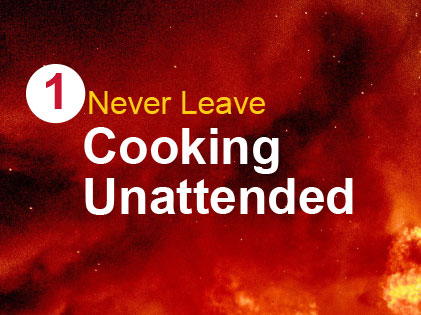
Never Leave Cooking Unattended
Cooking is the number one cause of accidental dwelling fires in the home, so don’t leave cooking unattended, not even for a minute.
- Keep the cooker and grill pan clean and free from the build-up of any oils or grease.
- Avoid cooking if you have been drinking alcohol, especially late at night; alcohol can make you drowsy and forgetful.
- Never put water on an oil fire or grill pan fire as it will turn into a fireball.
- Think about having a fire blanket in your kitchen for emergencies and follow the instructions supplied with it.
Practise Safe Charging
The second most common cause of fire in the home is connected to electrical items. All electrical items can overheat so don’t leave phones, tablets or laptops on charge longer than necessary.
- Use approved chargers and charge on hard surfaces.
- Never charge items on your bed as cushions and bedding are flammable.
- Don’t plug too many electrical items into one socket as this can cause overheating.
- Use trailing leads rather than block type connectors.
- Switch off and unplug electrics when not in use and before bed.
- Switch off hair straighteners after use and cool on a heatproof surface.
- Don’t put portable heaters close to sofas, beds, clothing etc, and never leave them unattended.
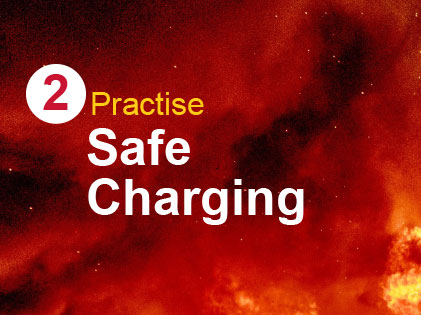
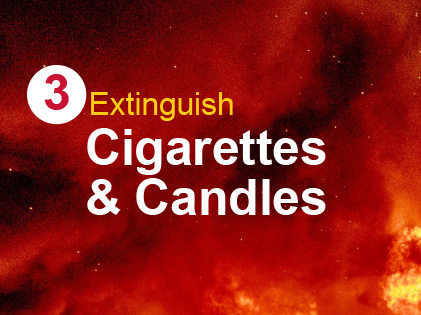
Extinguish Cigarettes and Candles
Remember to extinguish cigarettes and candles before going to bed at night.
- Take extra care when smoking inside, it is safer to smoke outside.
- Empty ashtrays regularly and ensure cigarettes are completely extinguished before putting into the outside bin.
- Never smoke in bed.
- Keep candles/tealights away from flammable surfaces or textiles, eg, curtains, televisions, bath tubs.
- Never leave lit candles unattended and use a proper holder.
Remember Think When You Drink
The likelihood of a fire accidentally starting is greater if alcohol is involved as it can make you sleepy, clumsy and forgetful. It also affects your ability to hear a smoke alarm and react safely in an emergency.
- If you are planning to have a drink with friends avoid the common causes of accidental dwelling fires by:
- avoiding cooking
- not lighting candles
- avoiding the use of electric heaters
- smoking outside.
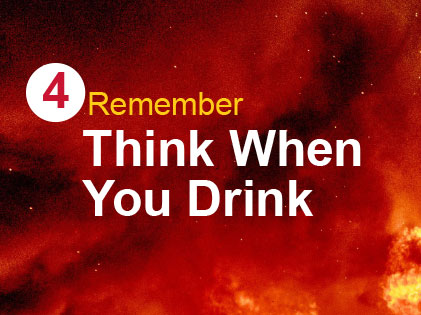
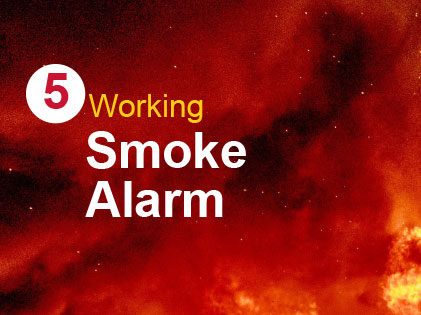
Working Smoke Alarms
Make sure you have working smoke alarms.
- Smoke alarms should be tested weekly.
- Consider additional smoke alarms if you have ignition sources in your bedroom, eg.
- if you are charging a lot of electricals
- using candles
- have portable heaters.
Have Escape Routes
Many fires happen at night when occupants are asleep. Always carry out a night-time check – extinguish candles and cigarettes, switch off electrical items and close all doors before going to bed. This will reduce the risk of fire and smoke spread and protect your escape routes.
- Plan your escape route.
- Make sure everyone knows the quickest way out in the event of a fire and consider an alternative route.
- Know where your keys are if they are needed to open doors to get out.
- Keep escape routes clear of clutter, remember if a smoke alarm goes off you want to be able to get out quickly and don’t want to be tripping on coats, bags and bikes on the way out.

If a fire starts
- Close the door on the fire to prevent it spreading.
- Alert everyone in the property if safe to do so.
- Get out, stay out and call 999 and get the Fire & Rescue Service out.
Universities and Colleges
All universities and colleges have a person responsible for fire safety in their buildings. If you have spotted a fire risk or have any concerns about fire safety in university buildings, then speak to them. If you are a student with a disability and need assistance to evacuate in the event of a fire then make the university aware. Make sure you pay attention to fire drills and never ignore alarms.
Houses in Multiple Occupation
Many students live in Houses in Multiple Occupation(s) where fire alarm systems, emergency lighting, fire doors and extinguishers are provided for your safety. If you have any concerns about fire safety in these premises, speak to your landlord. More information is available from the NI HMO Unit who administer the regulation of HMOs on behalf of each of the 11 Northern Ireland councils.